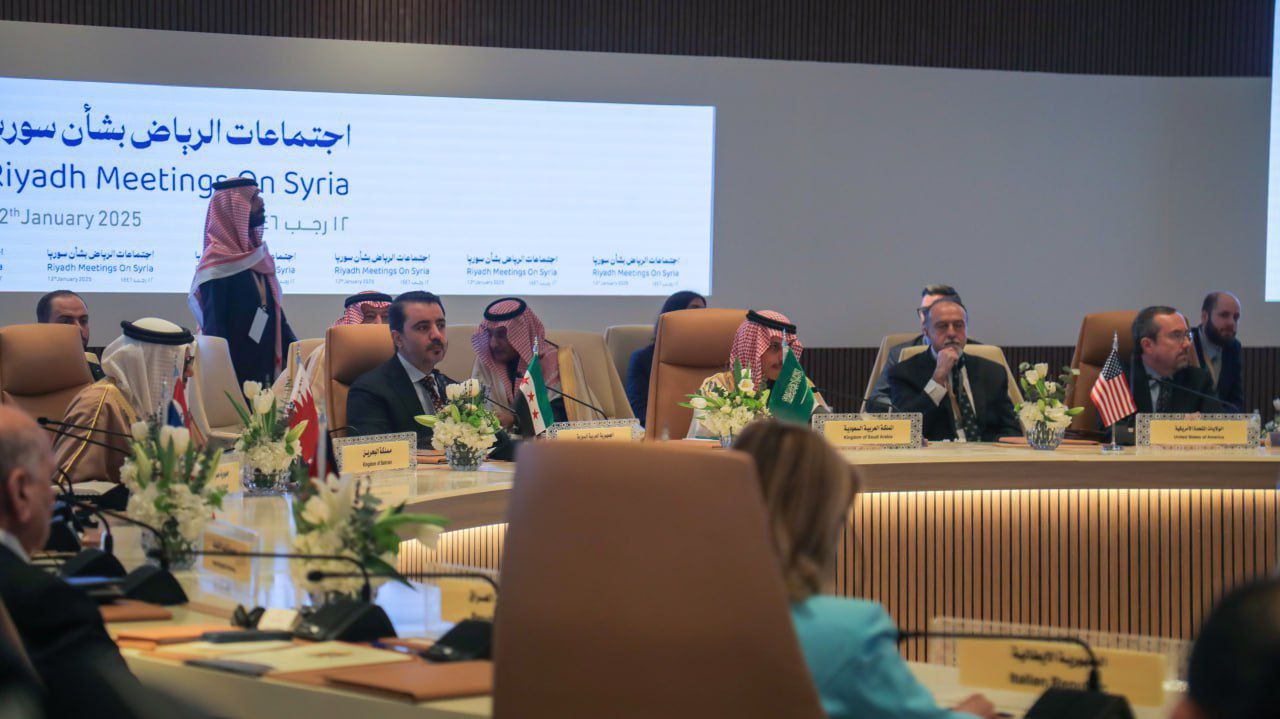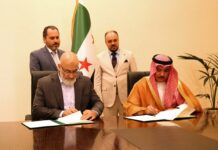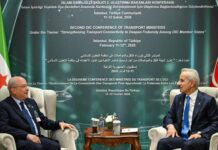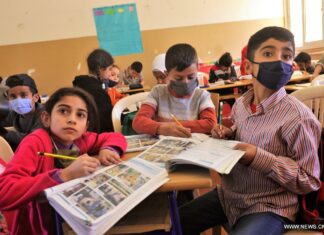
Foreign ministers and international representatives convened in Riyadh today for a landmark summit addressing Syria’s reconstruction and transitional stability following the fall of Bashar al-Assad’s regime. The summit, attended by Arab and Western nations, highlighted humanitarian efforts, political reforms, and regional security as priorities for Syria’s recovery.
Historic Gathering in Saudi Arabia
The summit, held on January 12, marked the first international participation of Syrian Foreign Minister Asaad al-Shaibani since the ousting of Assad. Al-Shaibani joined foreign ministers from Saudi Arabia, Qatar, Egypt, the UAE, and Jordan, as well as representatives from Germany, Britain, France, and Turkey. Delegates from the United Nations, the European Union, and the Gulf Cooperation Council were also in attendance.
Saudi Foreign Minister Faisal bin Farhan emphasized the Kingdom’s commitment to supporting Syria’s unity and sovereignty. “The future of Syria is a matter for Syrians, and we will continue providing humanitarian support,” he said. He also emphasized the importance of easing sanctions on Syria to accelerate its integration into the international community.
Stability & Reconstruction
Discussions centered on steps to ensure stability, including combating terrorism, rebuilding infrastructure, and inclusivity in Syria’s new government. The summit follows last month’s talks in Aqaba, Jordan, which called for a Syrian-led transition to establish a representative, non-sectarian government.
British Foreign Secretary David Lammy described the summit as “an essential platform to assess Syria’s progress.” In a bilateral meeting, on the summit’s sidelines, with Al-Shaibani, Lammy noted, “This meeting is part of ongoing discussions to determine the necessary steps to support stability in Syria.”
Turkish Foreign Minister Hakan Fidan emphasized the importance of cooperation in countering ISIS, stating, “We can work together to enhance the new Syrian administration’s capacity to effectively combat ISIS. This meeting is a pivotal and historic moment.”
Economic & Humanitarian Support
Saudi Arabia has taken a leading role in providing humanitarian aid to Syria, including food, medical supplies, and shelter, delivered through land and air bridges. The Kingdom has also expressed interest in strategic investments to aid Syria’s reconstruction.
Syrian Foreign Minister Al-Shaibani outlined the new administration’s vision for the country, which includes fostering partnerships, launching development plans, and improving living conditions. “This visit opens a new and bright page in Syria-Saudi relations,” he said.
Qatar echoed its commitment to Syria’s unity and reconstruction. “We affirm Doha’s full support for the unity of the Syrian people during this crucial stage,” said Qatari Prime Minister and Foreign Minister Muhammad bin Abdulrahman Al Thani.
Challenges Ahead
Despite progress, significant challenges remain. Western powers, including the EU and the US, reiterated that easing sanctions depends on Syria forming an “inclusive government” that protects minorities and upholds human rights.
The EU’s High Representative for Foreign Affairs, Kaya Kallas, noted that the bloc is open to lifting sanctions if Syria demonstrates meaningful reforms. “This meeting allows us to explore mechanisms to support the Syrian people while holding accountable those responsible for past atrocities,” Kallas said.
Anna Jacobs, a non-resident fellow at the Arab Gulf States Institute, highlighted Riyadh’s leadership in rallying regional support. “This summit sends a message that Saudi Arabia seeks to lead in coordinating efforts for Syria’s recovery,” she said. For the Syrian people, the summit represents hope for a future free from conflict and a step closer to rebuilding their homeland.








